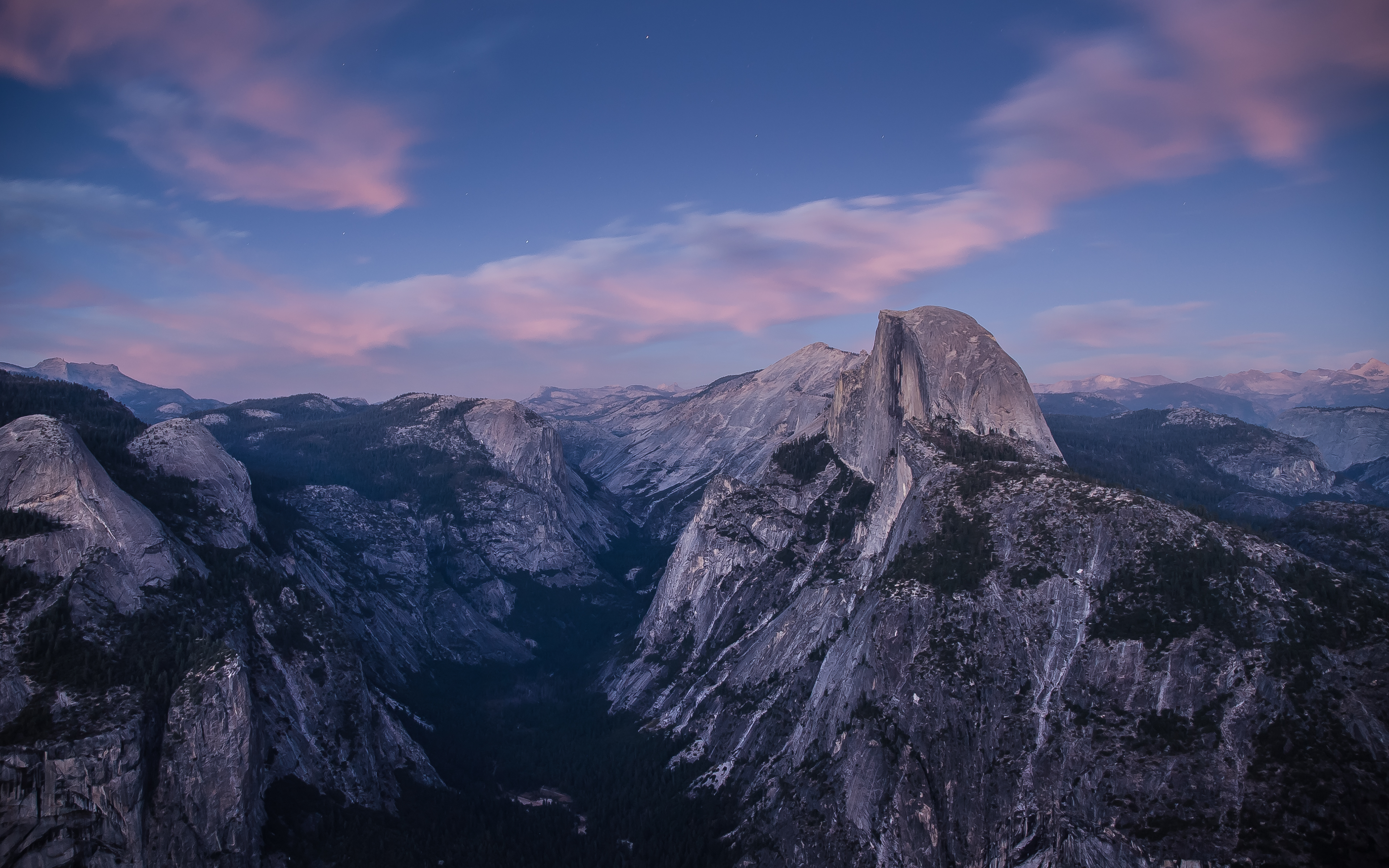书写者何江:关于一本不存在之书的推荐和版本学研究
- 文化
- 1周前
- 407
事情需要的时间往往比估计得更长。
尤其是,如果这件事情源自某种热切的渴望。越是想做,越是愿意为之牺牲,它需要的时间也就越长。 我们是(或者曾经是)多么热切地渴望燃烧自己,圆满完成某种心愿,而世界更愿意给热望的心一个长长的教训, 蹉跎热情,两鬓添霜,让人看到万事特别是那些我们尤其在乎的事情到底需要付出多少代价。到最后,在事情终于完成的那一刻,无法夸口说“这很圆满”,只能说“事情结束了”。怀抱着赤子之心所能达成的,大概就是这么多了吧。
我要在这里讲的就是这样一件事。我要推荐一本不会存在的英文回忆录,和它的版本学研究。
我第一次见到何江是五年前,初冬的波士顿,哈佛广场。见面的目的?介绍我们认识的朋友说,何江也对写作有兴趣,而我当时对写作这件事情的痴迷在朋友中有了点神神叨叨的名气。我们聊天,很快发现彼此写作的兴趣简直可谓是镜像的对立面,我想用中文写关于异国的小说,而他想用英文写关于自己在中国农村的成长经历。这样的对立让我觉得着迷,到那一刻为止,我从未深究过为何自己执着于用中文写异邦故事,这两个选择(用哪一种语言,写什么)对我来说都是自然而然的事情,于是我反倒好奇起来为什么有人会偏执地想用英文写中国的回忆录。
我们在一家西餐厅吃晚饭,何江和这位做介绍人的朋友都是哈佛的生物博士,他们的童年截然不同,何江出生于中国农村,而这位介绍人朋友成长在中国一线城市的优渥家庭,而那一餐让我印象深刻的一点是,这两人在谈吐和风度上惊人的相似:没怎么晒太阳的白皙皮肤,高等教育的文雅,实验室生活滋养出的沉静性格,经过沉思后的长句子。
写下以上的段落让我感慨,时间的飞逝,我们是多么大大的低估每件事情所需的时间。在五年前哈佛广场的西餐厅,他的英文书和我的中文书都已经有了详细的写作计划,已经完成了大半,还都有了希望很大的出版方。我天真地以为,到第二年的夏天,这两本书就可以印成厚厚的纸,赠送给彼此。
结果呢,我的关于异国人的小说(《中国特色的译文读者》)去年才刚刚得以出版,为了能出版这本虚构的小说集我不得不在几年前先出版一本我自己兴趣并不大的非虚构集子。那个殷勤备至而且签了合同的出版公司,在这几年中,从编辑云集到几乎走了所有人。纸质出版在世界范围内,以难以想象的速度山河日下。而何江五年前就有了完整的构思英文回忆录,至今仍未出版,倒是这本未出版的英文书的中文译本,《走出自己的天空》,在几个月前率先由湖南文艺出版社出版了。
我最近一次和何江聊天,问他英文版什么时候能出,他说,编辑考虑到市场,建议他把已经改过许多稿的英文回忆录改成小说再出版(!)。这毋宁是推倒重写这一本书,然而,这样古怪的要求,他居然在今年春天也已经把小说写好。至于到底什么时候能出版,真是天知道了……我不禁想起多年前,采访Peter Hessler,聊起中美的出版界,他深深叹了口气,说“这两个国家的出版行业都有很多问题。两相比较,美国的出版业更加病入膏肓,无可救药。”
在波士顿,我认识过另一类来自乡村的年轻人,他们的头发里仍然带着清新的泥土气,他们的脸庞黝黑灿烂,他们还没有对来自乡村这个身份产生怀疑和焦虑。何江不是这一类人。他已经决定了自己一生的志愿,要做一个生物学家,过一种枯燥干净的书斋生活。他关于过往生活的书写让我想起卢梭的《忏悔录》,哲学家回忆与自己当下已经毫无关系的童年生活。一种抱有距离感的真诚的回忆。
五年前的见面之后,他电邮发给我这本计划中的英文书的几个章节。当时,这本书是这样开头的:
It was a late spring night when I was five years old. Sleeping in my bed, I heard a voice echoing in my mind louder and louder. “Jiang and Jiaolong, wake up! Can you guys hear me? Wake up right now!”
I opened my eyes. Not far away, father was anxiously wandering around with a dim kerosene lamp in his hand. Mother sat by my side, trying to push my brother awake on the bed. Darkness covered most of the room; judging from the sound outside, I realized it was raining at that moment. I sat up, rubbed my sleeping eyes and wondered why they were calling us at this late hour. “What’s going on, Mom?”I asked.
“It’s the rain! Don’t you guys notice the heavy rain outside? Our house is flooded everywhere. Try to dress up quickly now! We may need to move out in case the house collapses!” Mother hastily explained. She didn’t have much time to tell me any details yet. But I clearly felt her anxiety from the trembling voice. Seeing that I was still half-asleep, mother pinched my arms to alert me up and threw the clothes to my side. “Hurry up, Jiang. It’s an emergency!”
这个章节随之绘声绘色地回忆了五岁那年全家人是如何应对大雨倒灌,在描述这个具体回忆的过程中也白描了这个农村家庭的生活图景。我本来并没有对这本英文回忆录有多大期待,而在阅读了这最初的几章之后我被着实吸引了。吸引我的有两大理由。其一是鲜活而 罕见的生活经验。捕鱼的父亲、织网的母亲、补蛇的舅舅、养蚕宝宝的弟弟。何江笔下的每个人物都如此生动、而他们所过的日子又是一种多么惊人、坚毅、而与众不同的经历啊。其二是一种独特的带有异邦感的语言特色。 因为作者本人的偏好以及对使用第二语言写作的顾虑,这些英文章节中多短句子,多动词,语言的选择比一般的英文回忆录更加正式而且节制。这些有意识或者无意识的选择,所带来的整体语言效果是独特而典雅的,这本书充满着具体的动作和情节,然而一以贯之的情绪却如此顺畅、沉稳,有一种自然而然的抒情性。
在接下来的五年中,何江又陆陆续续和我通信过几次。每次聊起他的英文书,似乎在出版上总有一些进展,然而进展并不够多,并不够快,总感觉离最后的出版日期遥遥不可及。唯一不变的是,无论出版上的进度如何,他似乎总在重写这本书。他发给我看最新的手稿,那些相同的故事和回忆总是在更换叙述的方式,而手稿的开头总会不同。
某一版本的手稿开头是关于父母的结婚证书:
When I was a small boy, rummaging through lost items at home, I came across one of the most well hidden objects in the deepest corner of my mother’s closet. It was a small brown wooden box with a blue latch, no lock, only a rusty nail twisted into a half circle to secure the inside such that little effort was needed to pry it open. Lying inside was a collection of booklets stacked on top of each other, all tied up by a red ribbon. There were mostly documents issued by the government to grant my family the right to live in the countryside. A crimson covered one, with several light blue sheets inside, listed the name of my family members. A few printed lines followed father’s name, reading “Farming household, owns a total of 7.7 acres of rice paddies in Ting Zhong Village.” Another one, quite thick, began with several pages of abstracts from the Chinese Constitution, explaining that all lands are owned by the country, and that individuals are only permitted by the government to use the land lawfully. The only page with father’s signature documented the boarders of our house---north: a communal road; south: mountains; west: ditch; east: vegetable garden. There were additional booklets, for instance ones that allowed the family to guard a small mountain in the south of the village and ones that publicized the significance of “One-Child Policy”. Yet, none of them interested me as much as a small red covered one. From the print, I gathered it was the marriage certificate for my parents.
而另一版本的手稿开头是关于城市生活的想象:
When I was a child, long before I moved to the United States, I was told by everyone that the world outside my village was a much better place. If I ever got into that wonderland, I would find Sugar River and Golden Palace, and live a happy and carefree life. At that time, my village was still an isolated place. The farthest most peasants traveled was to the center of the town, ten kilometers away from my house. Peasants liked to gather at the center of the village, where the only bus out of town came by twice a day, chattering and fantasizing a glamorous world beyond our horizon.
“Boy, do you know that people in the cities don’t walk by themselves, but have sedan chairs to carry them around?” A peasant tugged me forward to share what they knew about the outside world. “People don’t grow crops there - unlike us in the village. There is no rice or vegetables on their lands. If you become hungry, just walk to the street. There will be people serving delicious food everywhere.”
“Is the food there free?” I have always had this question throughout my childhood.
“It is free. I am most positive that it’s free. How can food not be free in a city?”
There were two types of people in the world - one who relied on physical labor to live, and one who relied on their mind power. In a village where the value of food was measured by the working hours, it was natural for those who did physical labor to think the other camp never actually worked, and the food, therefore, must be offered to them for free.
还有一个版本的开头是关于如何在谷歌地图上找到他的家乡:
It will be most easy to describe where I was originally from by just searching from google map. However, these attempts might be futile because I did try to locate where it is once but only to find it blank as I started to enlarge the images. Most of people won’t even care about where it is and for those who care about it; they know every road by heart. It is within Hunan Province in the middle of China, about *** miles away from the Three-Gorges Dam. Surrounded by continuous mountains almost as a natural barrier, people started to live within this region and build up cities around 1500 years ago. Within the county/district, there are around 1.3 million people living today. It is heavily populated given the county itself is only 2906 km2.
Our village has around 2000 people, occupying an extremely small area of farming land----the size equal to Cambridge in MA. For many years, rice is the only crop we grow and every family relies on the rice been produced to feed their own. Most of families do have livestock so that they can either sell them or get meat to eat. Land is extremely barren and rich lands for agriculture are scarce. Around 15 years ago, most of families still relied heavily on agriculture for their life even though it couldn’t produce much. Almost all of the work was done manually at that time and hence it is an extremely inefficient way of agriculture. The annual income was around 400 dollars for most of the farmers at that time in my hometown and most people were extremely poor. It was when the “one-child policy” was just constitutionalized in China and reaching the rural countryside when I was born even though I have a younger brother. Families were just beginning not to be allowed to have more than one baby and those did would be seriously punished by the government. The culture revolution still had its shadow in people’s mind and most of farmers didn’t know what to do for their future. Life was tough, and just like what it was for hundreds of years, with endless work in the farm field and little hope for the future.
这样不断的重写和改写让我痴迷。 我问何江,书稿一共改了多少版?他说他也不知道到底改了多少版,似乎总是在改。 删删改改了那么多年,甚至经历了一次笔记本电脑被丢, 从前写的很多个版本都找不到了。为什么总在不停地改?似乎这其中有很多“贵人”和“友人”的意见,每一个似乎能为出版推波助澜的新朋友,看到稿子之后总会提出这样那样的意见,把何江的书包装成哟一个他们想象中的“美国梦”。
然而另外的一些修改(甚至可以说,大部分修改)的确是自发的。一个人沉迷于完美地讲述自己的故事,为当下的自己找到依凭。他自然有很多素材,他的童年比城市孩子的童年要丰富得多。然而在数次改写中,他实则并没有增删任何素材,只是在不断地在改变叙述的方式、顺序、角度。这个关于成长的故事中总是包括了老房子的坍塌,对于新房子朝向的争论, 打工的父亲如何想方设法把发到的薪水藏在身上,每次去看外婆的时候如何淌水过河……同样是这些素材,然而何江叙述这些事情的角度的确发生变化了。
最初写的几个版本,一种历险的惊喜感跃然纸上,一个人在记忆深处重新找到了那些鲜活的故事,随着主人公(也就是少年时的自己)重新经历一遍冒险。他不厌其烦地回忆出当初的所有对话,所有动作的细节,少年时的自己是何其兴奋,正如现在作为书写者的自己是何其兴奋。
而后写的版本,在叙述的角度上最大的改动,我认为是自发地加入了一个正统的声音。其一,是人物的描述上更加stereotype了。初稿中母亲是一个极富创造力,奇想连篇的人,定稿中的母亲仍然富有创造力,却同时突出了她的操劳辛苦。初稿中的爷爷固执而不近人情, 作者清晰地回忆了自己当时对爷爷的某些决定是多么恨,定稿中,每每提及爷爷的刻薄,作者便不忘记以一个过来人的姿态原谅了这位长辈。 和初稿中那时不时让人惊叹的情节转折相比,定稿似乎一直在为其人其事合理化,平常化,似乎是刻意为了让人看到,即使生活在这样一个偏僻的农耕家庭中,家庭关系里的“严父慈母”,“教育至上”的观念,就和一个大城市中产阶级的的孩子无甚区别。 其二,在回忆往事的基础上,作者会加叙夹议一些“主流价值观”。在回忆童年趣事的间隙,他不时发出感慨: 十几年来中国的进步巨大,全世界有目共睹。或者:中国农村已经日新月异了,自己童年这些苦中作乐的经历在下一代的农村孩子已经无法想象。或者:如今在哈佛做研究时,时常想到童年的经历,更加激励自己造福更多人。而现在在大陆市场上能买到的中文版《走出自己的天空》,更接近于这些后期版本的中文翻译。
对于这些修改,我不太同意喜欢。究其原因,并不是因为我觉得何江写得不对或者不应该这样写,而是近几年的这个国家的政治走向,让我对这样一种“中国梦”的歌颂式的调子的本能的怀疑。也许何江的家庭和村庄的确在最近几年中日新月异,天翻地覆,而我的下意识总觉得“这些对于威权政府的赞美令人可疑”,“为什么他不提提留守儿童问题呢?”,“为什么他没有提到农民工问题呢?”。我受到的自由化的教育让我觉得:一个知识分子的良知理应让作者带有批判意识的看待问题,而不是去附和/加强一种意识形态下的主流观念。想到这里,我就意识到,我这种批评本身其实就局限于自己的背景和阶级的。只有一个城市中产阶级,才会凡事都本能地对当权者产生怀疑。而只有一个受过高等教育训练的人,才会把评判精神当作是良知的一部分。
这段自省的话或许会让人一头雾水。到底是什么意思呢?大概就是《了不起的盖茨比》开头的意思:“每当你想要批评别人的时候,一定要记住,并不是所有的人都拥有你那样的优越条件。” 我想说的是,我格外喜欢我最初读到的那几章英文初稿,那么清新,自然,一个人刚刚找到自己的声音。我也能渐渐理解了他为何几番删改,最后的中文成书里能看到初稿里那些清新的段落和意境,也能看到一个作者与自己的辩论、斗争、和妥协。我和何江并不熟,匆匆一两次见面,一年半载写上一两句email。然而我的确视他为一个珍重的朋友,就像一面镜子,在这个看不到终点不过终点似乎早已无关紧要的马拉松出版之路上,照见自己对读和写的热情。
哈佛一别,五年过去了。何江成为了在哈佛毕业典礼上第一个做演讲的中国学子,这个殊荣和他独特的童年经历着实吸引了一阵子中国媒体的眼球。他留在了波士顿,从哈佛去了麻省理工做博后,继续在科研的长路上奋进。而我呢, 五年前见何江时我还在美联储工作,而五年后的美国似乎已经不需要那么多金融和经济人才了,就像很多受过金融和经济学教育的朋友们一样,我搬到了美国西海岸,加入了一家科技公司,成为了一个数据科学家。
和我经常交接的一个产品经理,是个出生在中国东北的男孩子。二战前后此地遗留下来了一些日本人,战后并没有回到日本,而是与当地人通婚,有了混血的孩子。这位男生,就因此有了四分之一的日本血统。在东北的农村里长到快十岁,因为一个机缘,得以回到日本,开始学日语,进入日本的学校求学,因此才改变了头朝黄土背朝天的命运。 我们年龄相仿,所以讲话戏谑。 每次聊天,聊到最后他总是用夸张的英文说,“Lily,哇,你是上海来的。大城市啊,city girl,very spoiled.” 我便跟他解释,我小时候,上海人是多么穷,父母单位分的公寓是多么小,学校宿舍是多么破。他听而笑之,一个劲地调侃说,spoiled, spoiled。有一回,已经是下班时间了,不太忙, 他便用英文说,“来,给你看看我老家。” 他打开谷歌地图,一路移到黑龙江的一座山脉,放大,放大,一直放到一片空白之处,他回头看我,换成东北腔的普通话说:“看,这就是咱们村。因为太偏了,地图上都找不到的。” 他又移到边上的一个黑点,说,“这就是我的小学。危房,已经炸掉了。” 然后他慢慢地以一种平时听不到的严肃的口气说,“你跟我说过,上海那个时候是多么穷,学校是多么破。可是,至少你的故乡在地图上能找到,你的学校还没有被炸掉,对不对?”
这个男生常常让我想起何江。每当他聊起自己穷苦的童年——远远多过穷苦,而是穷苦所带来的那种冒险精神和坚定的信念,我所受到的教益,正如我阅读到的所有的何江的文字。
就像何江不断重写这本书的开头那样,他发给我的每一版书稿也都有着截然不同的结尾。每一个结尾,他似乎都在试图解释,为什么要写作,为什么要写这本书,这些过去和他的当下有什么关系。有一个结尾,他提到了他在哈佛交到的几个美国朋友如何影响了他的世界观。另一个结尾,他提到了被蛇咬伤后的舅舅走南闯北在中国各地做施工,遭遇拖欠工资,只好回故乡重操旧业做回捕蛇人。还有一个结尾,也是我最喜欢的一个结尾,提到了父母对家乡的乌江污染的反应。 本书的中文版《走出自己的天空》的最后一章也是关于这条母亲河乌江的,可是并没有提到英文版里这件轶事。我想,这些英文恐怕也不会进入到那本美国编辑想要的小说里去吧。这本不存在的英文回忆录的结尾,我抄录在这里:
“The police are people with sense, aren’t they, son? They know the Black River is our only river. If the water is polluted, where are we going to get our drinking water?”
“But it seems the local government is on their side. Will this protest ever be useful?”
“I don’t know, son. But many people in the village are saying that we should have our voices heard by the local officials. If we don’t do anything, we will be the ones who suffer in the end.”
I was surprised to hear my parents making such a sensible argument, for they rarely cared about these social matters before. Hanging up the phone, I wondered whether it was the modernization process that had helped my parents develop a more educated perspective on their lives, and I couldn’t help thinking what their life in the countryside might become in the years to come.








